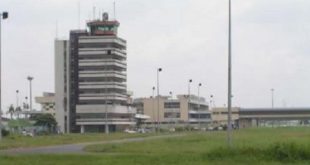Military Africa | Cameroon, a country located in Central Africa, has been grappling with security challenges in recent years. The government has sought to bolster its military capabilities, including its air force, to address various security threats.
As part of its efforts to modernize its air force, the Cameroonian government entered into a deal with AgustaWestland, an Italian aerospace and defense company, to purchase four AW109E helicopters in 2019 with have manufacturers Registration (CSX81933, CSX81934, CSX81935 and CSX81936).
Since September 2018, four AgustaWestland AW109E Power helicopters have been undergoing flight tests at Varese-Venegono in Italy, wearing Cameroon Air Force markings, though no contract has been announced. At least two of these aircraft can be fitted with an under-nose searchlight, an underbelly electro optical/infrared (EO/IR) sensor turret, and with a winch on the starboard side.
However, despite paying $25 million for the helicopters, the Cameroonian government is still unable to receive three, four years after the initial payment was made. This has raised concerns about transparency, accountability, and the efficacy of procurement processes in the country.
The AW109E is a versatile and advanced helicopter used for various missions, including surveillance, search and rescue, and medical evacuation.
The Cameroonian government’s decision to acquire these helicopters was aimed at enhancing its aerial capabilities for counter-terrorism operations and border security.
The deal was signed in 2019, and the Cameroonian government made the full payment of $25 million to AgustaWestland for the four helicopters.
However, despite the payment, the helicopters have not been delivered to Cameroon as per the agreed-upon timeline. The Cameroonian government has expressed frustration over the delay, citing concerns about the impact on its military operations and security efforts.
AgustaWestland has provided various reasons for the delay, including issues related to production, logistics, and export clearances.
Nevertheless, four years have passed, and the remaining three helicopters have not yet been delivered, leaving the Cameroonian government in a difficult situation.
One of the main concerns raised by this situation is the lack of transparency and accountability in the procurement process. The Cameroonian government made a substantial payment of $25 million to AgustaWestland, but the helicopters have not been delivered as promised.
There have been calls for greater transparency in the procurement process to ensure that such delays and failures do not occur in the future. It is crucial for the Cameroonian government to conduct thorough due diligence before entering into any procurement agreement, including verifying the capabilities and track record of the supplier, as well as ensuring that the terms of the contract are clearly defined and enforceable.
Another issue that has been highlighted is the need for effective contract management. The Cameroonian government must ensure that proper contract management processes are in place to monitor the progress of the contract, including regular updates on production, logistics, and export clearances. This can help identify and address any potential delays or issues that may arise during the contract period. Additionally, there should be clear penalties or consequences for any breaches of the contract, including failure to deliver the goods or services as agreed upon.
The failure to receive the AW109E helicopters has also raised questions about the efficacy of the procurement processes in Cameroon. Procurement is a complex process that involves various stages, including planning, tendering, evaluation, contract award, and contract management. Each stage must be carefully managed to ensure that the procurement is conducted transparently, fairly, and efficiently.
It is important for the Cameroonian government to review and strengthen its procurement processes to prevent similar issues from occurring in the future. This may include enhancing procurement policies and regulations, providing training to procurement officials, and implementing robust oversight mechanisms.
Furthermore, the situation with the AW109E helicopters has implications beyond just the procurement process. It has a direct impact on Cameroon’s national security and defense capabilities.
Cameroon’s Air Force operates fairly outdated and aged aircrafts fleet, with focus primarily on transport and utility. None of it’s six Atlas Impala jet trainers purchased from South Africa in 1997 is operational.
The delay in receiving the helicopters has hindered the Cameroonian air force’s ability to carry out its operations effectively, including counter-terrorism efforts and border security patrols. This underscores the importance of efficient and effective procurement processes in the defense sector to ensure that the country’s security forces are equipped with the necessary resources in a timely manner.
An October 2022 attack by Jihadist group affiliated with Jama’at Ahlis Sunna Lidda’awati-Jihad (Boko Haram) terror group on a forward operating base (FOB) in Djibrilli, near the Nigerian border raises questions about Cameroon’s military capacity to effectively manage the insecurity amid cuts to military spending, in addition to sending more of its troops to the conflict in the country’s Anglophone regions.
Another aspect that has been highlighted in this situation is the need for stronger contractual agreements and safeguards. The contract between the Cameroonian government and AgustaWestland should have included clear clauses and provisions that outline the rights and responsibilities of both parties, including timelines for delivery, penalties for delays, and mechanisms for dispute resolution.
Robust contractual agreements can provide a legal framework to address any disputes or breaches and ensure that the parties involved are held accountable for their commitments.
The issue of corruption cannot be overlooked in this context. Corruption has long been a challenge in many countries, including Cameroon, and can undermine the integrity of procurement processes.
It can result in unfair practices, including favoritism, bribery, and embezzlement of funds, which can ultimately lead to delays, inefficiencies, and failures in procurement deals.
The Cameroonian government must take proactive measures to combat corruption in its procurement processes and ensure that all transactions are conducted transparently and in compliance with established rules and regulations.
 CameroonOnline.org Cameroon news, Actualité Camerounaise, live Web TV & Radio, World News and a lot more
CameroonOnline.org Cameroon news, Actualité Camerounaise, live Web TV & Radio, World News and a lot more





Procurement as stated in the above article, isn’t really dealt with in francophone agreements . There are thin instruction manuals in english language and massive tomes in french in the building industry .Engineers take a course in it, mid career ,when they can find one .All governments ( of any country ) entity’s in financial departments should use filters of simple procurement ….it’s also linked to common sense .Both parities in any deal should make procurement details as clear and as simple as possible ,especially when different languages are in the middle .